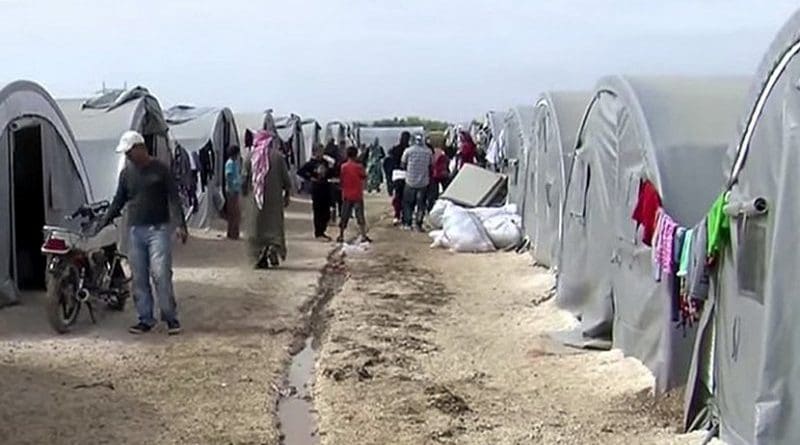World Refugee Day: Refugees Are Still Seeking Safe Shelter – OpEd
World Refugee Day is an international day designated by the United Nations to honor refugees around the globe. It falls each year on June 20 and celebrates the strength and courage of people who have been forced to flee their home country to escape conflict or persecution.
World Refugee Day is an opportunity to foster empathy and understanding for their plight, as well as to recognize their resilience in rebuilding their lives. It also honours the strength and courage of refugees, as well as encourages public awareness and support for refugees, who have been forced to flee their homes due to conflict or natural catastrophe. The purpose of the awareness day is to increase public understanding of refugees while also raising support and assistance.
According to the UN refugee agency, Pakistan is facing new inflows of asylum seekers from neighboring Afghanistan following the Taliban’s takeover of Kabul. Pakistan, which already houses at least 3 million Afghans, both refugees and illegal economic migrants, announced last year that it would not accept new Afghan refugees and tightened border controls to prevent illegal entrants following the Taliban takeover.
UNHCR’s supervisory responsibility is set out explicitly in its Statute, as well as in Article 35 of the 1951 Refugee Convention and Article II of the 1967 Protocol, and requires all Contracting States to cooperate with UNHCR in the exercise of its responsibilities.
For over four decades Pakistan has hosted over 1.4 million registered Afghan refugees and the country currently hosts 1.3 million documented and nearly as many undocumented Afghan refugees. The Pakistani government responded positively, granting them some rights to work and live. However, by the mid-1990s, this perception had deteriorated; refugees were accused of putting strain on services and the labour market, as well as being blamed for an increase in crime and terrorism. Voluntary repatriation became the primary policy response.
For a long time, Pakistan has housed one of the world’s largest displaced populations. It has traditionally welcomed and accommodated refugees better than many other countries. Since the 1970s, the country has seen a massive influx of Afghans fleeing violence and conflict. The first comprehensive registration of Afghans living in Pakistan, which took place in 2006-07, issued a Proof of Registration (PoR) card to many Afghan refugees, which was initially valid for three years. The government then extended the cards’ validity several times.
Pakistan also assisted the United States and other Western countries in evacuating thousands of at-risk Afghans for their onward journey to the country of their resettlement.
Conflict remains a major concern in Pakistan as, although domestic terrorism has reduced following measures taken by the Pakistani state, extremism and intolerance have grown fueled by narrow visions of refugee identity.
Pakistan also faces a mounting debt crisis and trade imbalance, and the management. High-profile disputes with neighboring India and Afghanistan also continue to pose a threat to regional security. These economic concerns have been coupled with perceptions of the heightened security risks.
Now with the war in Ukraine waging on, the number of people seeking refuge outside of their home countries or displaced within is higher than ever and its women and girls who are suffering the most. The United Nations’ refugee agency says more than five million Ukrainians have been forced to flee their country in less than two months since the Russian invasion, creating an unprecedented refugee crisis.
The Geneva-based UN High Commissioner for Refugees (UNHCR) said 5.01 million Ukrainians had left the country since Russia invaded on February 24 .
Against the backdrop of the war in Ukraine and the humanitarian crisis in Afghanistan, we call on the international community to invest in fragile and conflict-affected areas because they are the key to a peaceful future and international community must not ignore the Afghan people and must ensure the provision of aid to the war-torn country and its refugees trying to find a better career.
The international community must financially support Pakistan in the hosting of both their existing and new Afghan refugees. Without this push from the international community, Afghan refugees will be caught in the middle of increasing regional instability, left to hope for the advent of an unlikely peace, forty years in the losing.
Pakistan is already facing economy crisis and then, if we are unable to provide jobs to our own people, how can we lift the load of surplus refugees?
The writer is a freelancer and media activist, writes on political developments and security issues with special focus regional affairs.

